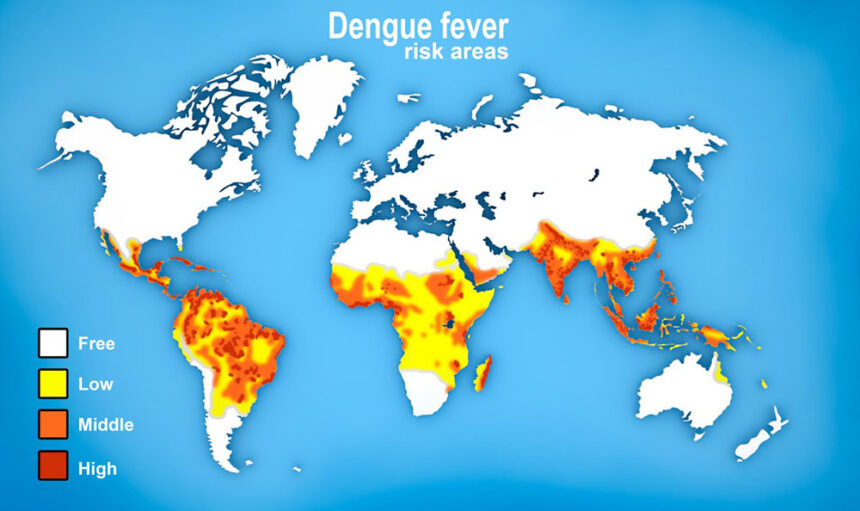Chad’s Ministry of Public Health and Prevention, on August 15, 2023, officially declared an outbreak of dengue fever in Abéché health district of the Ouaddaï province, in the eastern part of the country, representing the first dengue outbreak ever reported.
The declaration was made after the confirmation of dengue infection in eight out of 12 blood samples tested using real-time polymerase chain reaction (real-time PCR) at the National Biosafety and Epidemics Laboratory (LaBiEp) in N’Djamena.
Subsequently, the samples were sent to the Institut Pasteur in Cameroon for confirmation, which was completed on 22 August by PCR and ELISA, confirming the presence of dengue
As of October 1, there have been 1,342 suspected cases, including 41 confirmed cases reported across eight health districts in four provinces. Among the confirmed cases, one death was reported (Case Fatality Ratio (CFR) among confirmed cases 2.4%).
The dengue serotype responsible for this outbreak remains unknown.
Eight districts in four provinces (NDjamena, Ouaddaï, Sila, and Wadi Fira) have reported confirmed dengue cases. Notably, Ouaddaï, the epicenter of the outbreak, has reported the highest number of confirmed cases, accounting for 31 out of the total 41 confirmed cases (76% of confirmed cases). The age group most affected by this outbreak is those between 15 to 34 years old, representing 27% of the reported confirmed cases.
WHO Risk Assessment
This is the first dengue outbreak reported in Chad, and the country lacks the necessary public health preparedness and response capacities.
Community cases are likely underreported because dengue is unknown to the general public and clinicians are not yet sensitized to its presentation, which is sometimes confused with those of other common febrile infections, making early diagnosis challenging, particularly in settings with a lack of laboratory facilities for testing.
There is a high risk of spread due to the presence of mosquitoes in large, densely populated cities in eastern Chad near the Sudan border, with a tropical climate, and poor sanitation conditions suitable for mosquito development.
The province of Ouaddaï, which borders Sudan, is the epicenter of the outbreak and is also the province most affected by the ongoing humanitarian crisis due to a massive influx of refugees and returnees from Sudan. According to the United Nations High Commissioner for Refugees (UNHCR), the number of refugees in the Ouaddaï province is currently more than 400,000.
The movement of returning Sudanese refugees and Chadian nationals has the potential to spread the outbreak to new provinces and across the border.
Based on the information available for this event, WHO assesses the risk posed by this outbreak as high at the national level, moderate at the regional level, and low at the global level.









